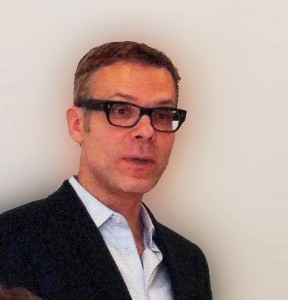 Teemu Ruskola is an internationally recognized legal historian and comparative and international law scholar. As well as his roles as Professor of Law and Faculty Associate in Comparative Literature, East Asian Studies, and Studies in Sexualities at Emory University, he is an elected member of the International Academy of Comparative Law and a member of the executive editorial board of the American Journal of Comparative Law. He is also the co-author of the latest edition of the leading comparative law casebook, Schlesinger’s Comparative Law (2009).
Teemu Ruskola is an internationally recognized legal historian and comparative and international law scholar. As well as his roles as Professor of Law and Faculty Associate in Comparative Literature, East Asian Studies, and Studies in Sexualities at Emory University, he is an elected member of the International Academy of Comparative Law and a member of the executive editorial board of the American Journal of Comparative Law. He is also the co-author of the latest edition of the leading comparative law casebook, Schlesinger’s Comparative Law (2009).
The roots of Professor Ruskola’s professional preoccupation with comparative and international law run deep. ‘I’ve always had an existential desire to learn new things, to find new ways of looking at and being in the world’, he says. This fascination to learn more about and be challenged by the foreign and unknown has characterized his professional trajectory. It also, he says, drew him naturally toward the subject of much of his scholarship: China. ‘My interest in exploring the boundaries of difference crystalized in China, because China is in many ways the significant civilizational other and an important way of considering difference’. ‘And’, he adds ‘learning to speak Chinese seemed like a good challenge!’
It was a challenge Ruskola met. After graduating from his Masters Degree in East Asian Studies with distinction and completing an intensive 12-month language program in Mandarin and classical Chinese in Taiwan, Ruskola has since published on the socio-historical and epistemological foundations of the Chinese political orders, the intersection of corporate and family law in China, the history and politics of Euro-American conceptions of sovereignty in the Asia-Pacific, and China’s historical status as an international legal subject. His latest book, Legal Orientalism: China, the United States and Modern Law (2013), is a wide-reaching, interdisciplinary analysis that investigates narratives in global circulation about what law is and who has it. His next book – China, For Example: China and the Making of Modern International Law – will look into the history of the introduction of Western international law into China, and how this has affected the theory and politics of international law. Both of these books are attempts to understand the complex and changing role of China in the world. ‘For me’, Ruskola says, ‘they also represent an itinerary of my own journey through Chinese law and legal thought’.
Professor Ruskola is an affiliated faculty member of the Finnish Centre for Chinese Law and Legal Culture and is also involved in two Chinese labour law-related Academy of Finland-funded projects hosted by the Law Faculty of the University of Helsinki. His research will include a historical and theoretical examination of the status of international law in China. He sees this work as critical in building understanding between the two countries: ‘The research being conducted under the auspice of the Centre and through the University of Helsinki is not only leading to key insights on China and labour law, but more broadly is playing an important role in encouraging the exchange of ideas and for helping understand legal differences between Finland and China’, he says. ‘Both countries have dynamic legal systems, and there is inherent value in the sharing of legal ideas between different legal and political contexts’. This sharing, however, should not simply involve the exchange of technical information and an appreciation of how legal rules function between contexts. Rather, Ruskola sees it as important that a broader perspective is taken. ‘Legal analysis across legal systems should be undertaken carefully and be mindful of the ethics of comparison’, he says. ‘By facilitating the sharing of ideas with sensitivity to ethical considerations, the Centre is helping new understandings of legal subjectivity to emerge and allowing scholars from both countries to better understand themselves against the ideas of others’.
Given how jam-packed his CV is it’s a wonder Professor Ruskola finds any time to unwind. ‘I think it’s important to eat, drink and be merry’, he observes. Does this mean he will return to live in Finland to enjoy the tranquillity of nature at his family’s summer cottage? ‘Ha, I always love visiting Finland, but I still have a lot of exploring of the world to do before I move back here to live for good’.
Author: Stuart Mooney

